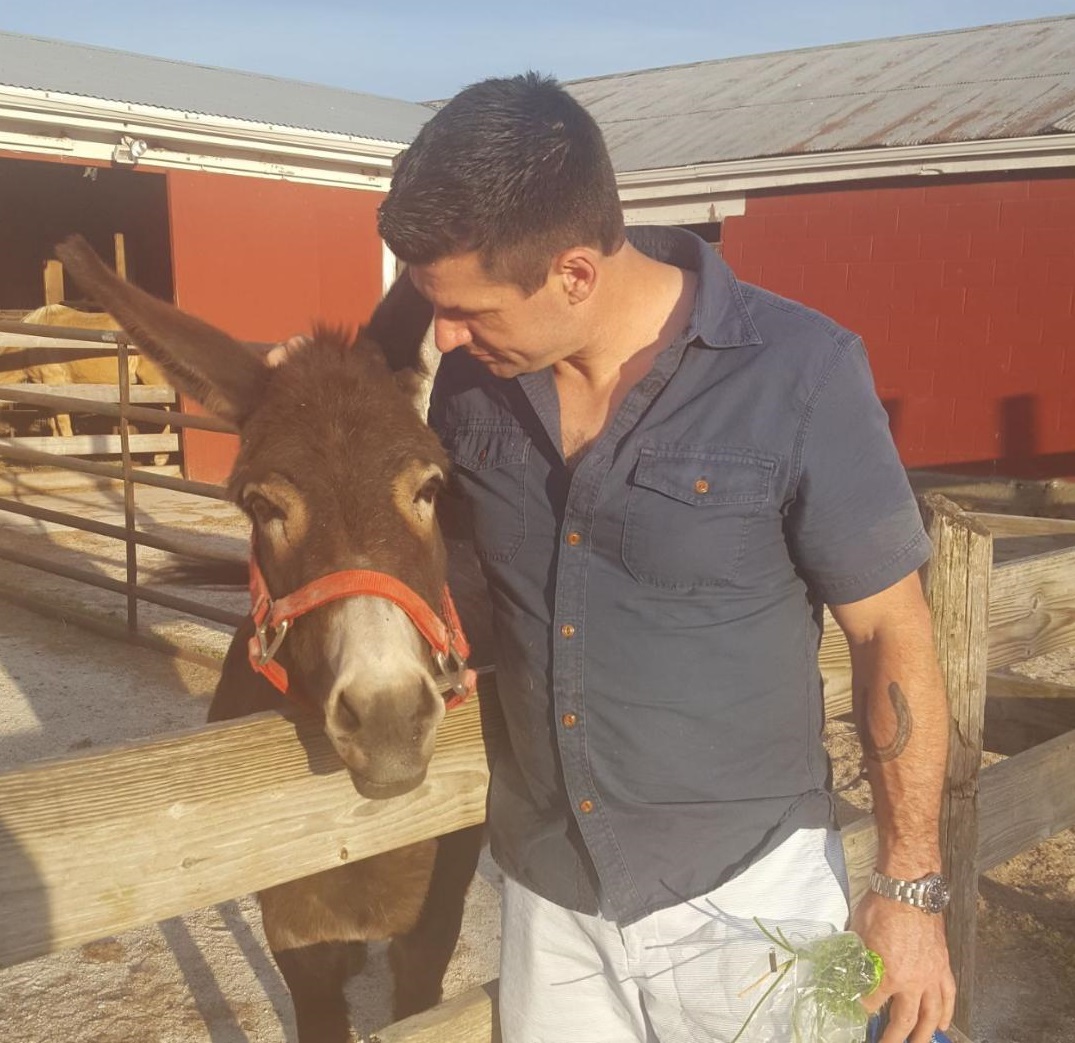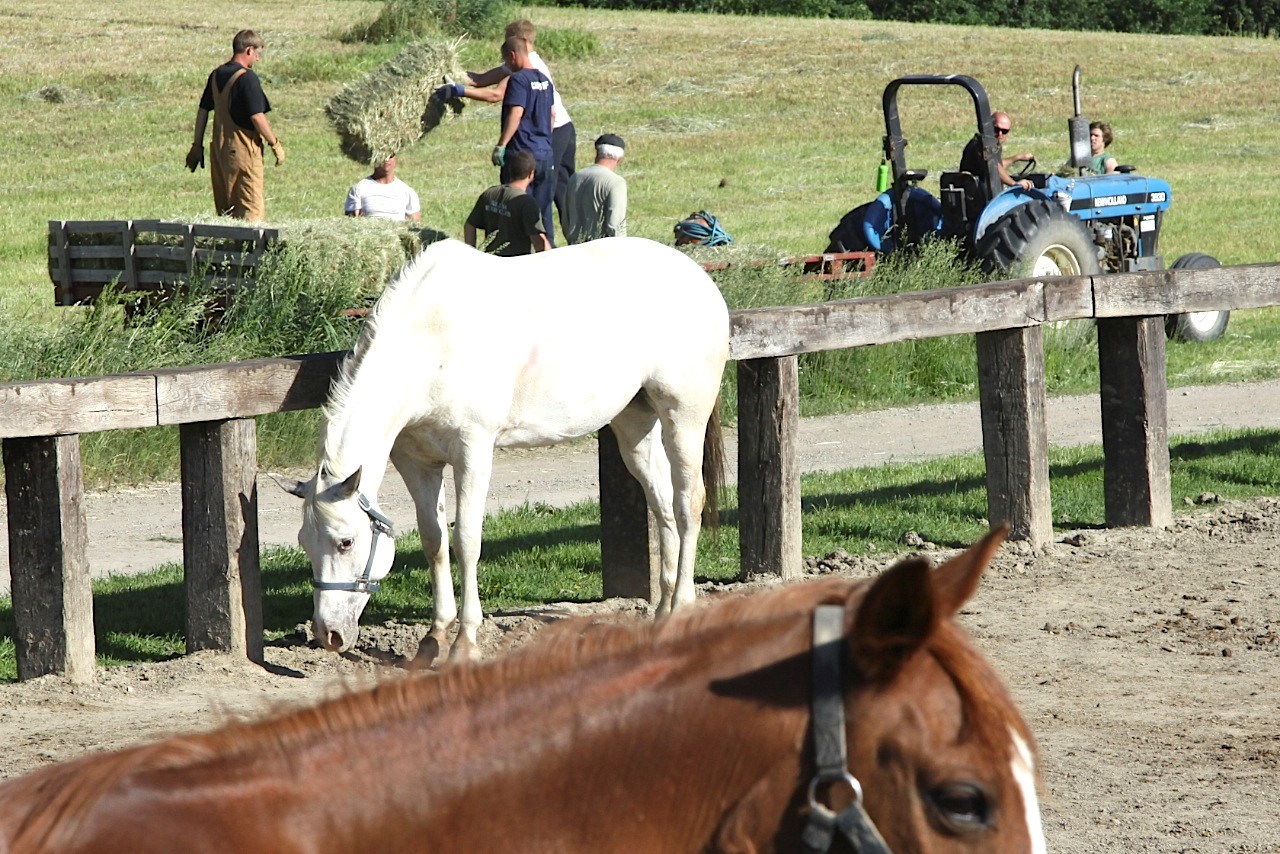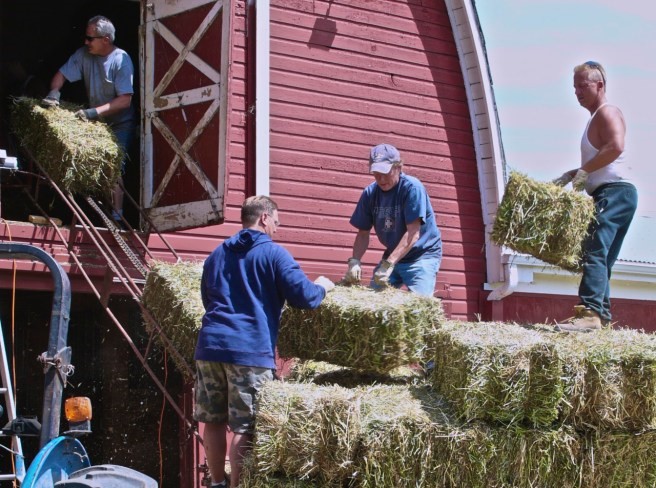Jim O’Connor has a vision.
The founder of the Second Story Foundation—a non-profit organization committed to rehabilitating substance abusers—is currently in the process of working to obtain the property in Crete, Illinois, known as the Double Dakota Farm, once a premiere harness racing training facility. However, the Chicago suburban horse complex has fallen into disrepair in the past decade, due to the decline of the Windy City harness scene.

“We hope to have a closing agreement by the end of June 2024, for this property.” O’Connor, 49, stressed. “Our goal is to build a 6,000 square foot lodge and two single family homes on the property. We have two phases of our rehabilitation program that are unique. First, there is no time limit on how long the men can stay here, and second, the work we assign them to is also unlimited.
“We hope to bring this place (Double Dakota) back to life,” he continued. “The first year we will have our people doing the basics, cleaning stalls, rebuilding fences, rebuilding stalls, and helping with basic maintenance. The second year we hope to get the men more involved in horse care and becoming a vital part of the harness community.”
Like most rehabilitation programs, the Second Story Foundation is a 12-step program, with jobs for the attendees found both inside and outside of the facility. The program is free of charge, has no time limits, and can accommodate up to 15 men.

O’Connor’s road to where he is today was not an easy path. Born and raised in Evanston, IL, he attended both Loyola and Indiana Universities, studying English and philosophy. He worked for a variety of grass roots organizations, as well as a stint in the Peace Corps, serving in East Africa from 2000 to 2001. But, as he admits, he was an alcoholic and it caught up with him, ending in a failed suicide attempt, after which he sought help. Eventually, after completing his recovery and getting clean, he became a trained addiction counselor.
“I had amazing, interesting jobs, but alcoholism plagued me and eventually I ended up homeless in California,” he admitted. “I made my way back to Illinois, where I enrolled in a sobriety program in Palos Park. There, I worked with horses, cleaning stalls, and literally and metaphorically, dug myself out of the hole I had gotten myself into. The job on the farm was transformational.”
O’Connor explained that securing a job after finishing a program can be difficult for recovering abusers.
“Even if you had a good work ethic at one time, you’ve lost it,” he said. “You were a good worker when you were well, but having issues causes you to lose that sense of your strong work ethic. There’s no better way to rebuild that work ethic than by working on a farm and taking care of animals.”
O’Connor was enrolled in the Palos Park program from 2016 to 2017, and then in 2019 was asked to manage the program, which he did until 2023. In the meantime, he had founded the Second Story Foundation, which helps recovering addicts to get a lease on an apartment or home.
“Basically, most people who sign up for these programs are homeless,” O’Connor said. “And most of them have mental health disorders. As a result, even when they come out of the program, they have a really challenging time getting a lease on an apartment. Our program sets them up in a house, where they pay rent with other recovering addicts, and they live there and when they finish in the program, we help to get them into an apartment of their own. Our goal, with the Double Dakota property, is for that to become our flagship of the Second Story Foundation.”

O’Connor’s program has one house in Alsip and another in Orland Hills to accommodate their goals within their long-term abuse recovery program. Right now, the program is for men only, but O’Connor said he hopes to begin a women’s program in the future.
“First, we hope that our program will help to inspire and become a model for others to replicate,” he said. “Secondly, the first thing we want to do, once we’ve secured the Double Dakota property, is to work with the Veteran’s Mental Health of Will County. This is twofold and will benefit them and benefit us: we will utilize them to help clean up the property, and in turn, they will get credit for their community service hours.”
Tony Somone, the Illinois Harness Horsemen’s Association Executive Director, sees the new program as a positive for the Prairie State.
“We welcome Jim to the horse racing community and hope that he’s successful in his endeavor with this project,” Somone offered. “Addiction problems are real and whatever the horse racing community can do to help, we’re here.”
“I realize these are ambitious goals,” O’Connor admitted. “But we hope to break ground on the lodges and homes by the Spring of 2025. We can then have our folks, who are in the program, start to work with the horses in order to help the harness horsemen who are stabled there, and again, become a vital part of the Illinois harness racing community.
“It took an act of God and the help of so many dedicated, caring people to show me the way forward after that,” O’Connor concluded. “I have survived suicide, homelessness, and severe alcoholism. All of us who make a comeback from severe substance use disorder are long shots at the gate. Who in horse racing doesn’t love a long shot?”
by Kimberly Rinker, for Harnesslink

 USA
USA Canada
Canada Australia
Australia New Zealand
New Zealand Europe
Europe UK / IRE
UK / IRE


